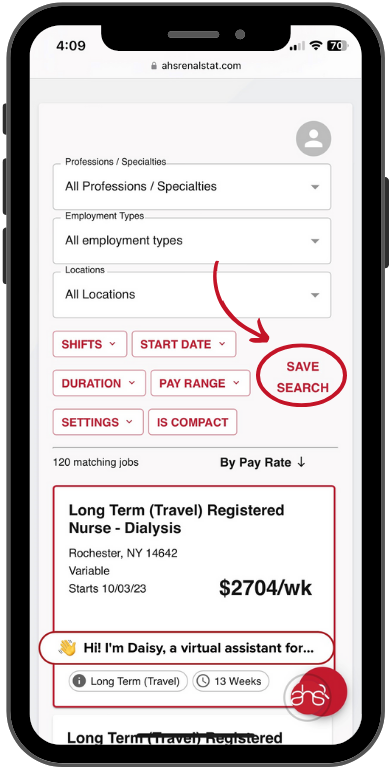With aging baby-boomers and the rise in diabetes, there is a greater need for dialysis nurses in the U.S. So how do these nurses find a “good fit” in the workforce?
Becoming a dialysis nurse may be a wise decision – long into the future. The dialysis industry is expected to grow due to increases in end-stage renal disease (ESRD) patients, diabetes, obesity, hypertension and the aging population.
According to the Bureau of Labor Statistics, there is an expected 22 percent increase in nurse employment over the 2008 to 2018 decade. This rate of employment will be significantly faster than the national average for all occupations. The demand for employment will be related to the rise in the elderly population, the widening of healthcare services, and advancements in medical healthcare technology. These factors will contribute to creating a favorable job market for qualified professionals.
A dialysis nurse, also called nephrology nurse or hemodialysis nurse, focus on conditions of the kidney. When the kidneys fail, toxins build up in the body and must be regularly removed. Dialysis imitates the primary functions of the kidney and is a life-saving process for individuals in acute or chronic kidney failure.
According to salary.com, the median expected salary for a typical Staff Nurse – RN – Renal Dialysis in the United States is $69,296. This basic market pricing report was prepared using a Certified Compensation Professionals’ analysis of survey data collected from thousands of HR departments at employers of all sizes, industries and geographies.
So how do dialysis nurses find a “good fit” in this growing industry?
Some are relying on Dialysis Staffing Agencies. These agencies spend months and sometimes years building relationships within dialysis facilities. They know their needs and are able to place qualified dialysis nurses into areas that “fit” their need.
One area that has been in high demand in other industries and just recently introduced in dialysis, is the per diem dialysis nurse. A per diem nurse works on a day-to-day basis when they are needed to cover for regularly-scheduled nurses on their days off. A per diem nurse may also be called in to supplement regular staff when there is a sudden influx of patients. AHS RenalStat is one of few dialysis staffing agencies that work with per diem dialysis nurses. “We are able to fill shifts quickly and help keep our clients functioning when staff is low,” said Brett Burleson, VP of Staffing with AHS RenalStat.
Another way that staffing companies are helping is through long term help – or travel assignments. Travel assignments make it possible for dialysis nurses to see different parts of the United States, while still doing what they love – spending time with patients. Because dialysis often requires a considerable amount of time each week, a dialysis nurse will spend extended amounts of time on one patient – and become very attached. This can be a good, or bad thing. “Dealing with patients who have a chronic illness is not easy because they become like family,” said Penny Pursley, a 22 year dialysis nurse.
Pursley, who has traveled off and on for many years, says, “I highly recommend becoming a travel dialysis nurse. However, I would like to encourage you to become certified in your field before you travel. And to the travel nurse companies, I also encourage you to encourage/require your nurses to become certified and to stay that way. As a traveler, we need to be on top of the challenges in the dialysis industry. I initially traveled because it was the only way that I could think of that my dialysis patient husband and I would ever get to travel. We LOVED it!! Be flexible, be courageous, be passionate, but please remember, you will see a lot – not all of it good. There are “bad” travelers as there are bad nurses everywhere, just be aware. See the world while working, that’s how I think of it. You’ll become a minimalist.”
When asked how she finds her travel positions, Pursley recommends going with a staffing agency that specializes in dialysis. “Finding a travel position isn’t easy for a dialysis nurse. Staffing crisis often hit out of the blue, people get sick, injured and sometimes fired. Life happens. And if you are working from an area of extremely tight staffing, one incident is all it takes to throw you into crisis mode! Some facilities seem to chronically use travelers, and I know they aren’t cheap, but really bottom line–what does a regular full-time staff member cost over the same period of time? And some facilities cannot find or keep regular staff, so they really have no choice. Most facilities use travelers because we are a high quality option. Some new nurses need to be trained, travelers just need to be oriented,” says Penny.
With people living longer, there is also more chronic disease so demand for specialties, such as dialysis, are expanding.
For more information, contact:
AHS RenalStat
A Leading Healthcare Staffing Agency
877-309-3546
www.ahsrenalstat.com


